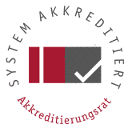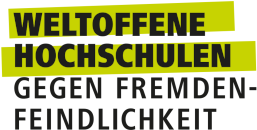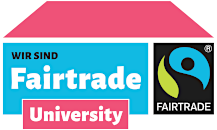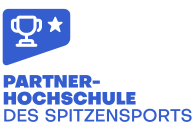Andreas Zendler – Publikationen
Refereed (Double Blind)
- Zendler, A., & Greiner. H. (2020). The effect of two instructional methods on learning outcome in chemistry education: The experiment method and computer simulation. Education for Chemical Engineers, 30, 9–19. d0.1016/j.ece.2019.09.0011749-7728
- Zendler, A., Seitz, C., & Klaudt, D. (2019). Mathematics teachers assess instructional methods supporting knowledge processes. Journal of Mathematics Education, 4(2), 76–86.
- Zendler, A., & Gohl, M. (2019). Direct instruction vs. computer simulation and their learning Outcome in engineering education. International Journal of Engineering Education, 1(2).
- Zendler, A. (2019). cpm.4.CSE/IRTN=small: A companion to cpm.4.CSE/IRT for N = small. International Journal of Research Studies in Psychology, 8(2), 81–96.
- Zendler, A. (2019). Teaching methods for computer science education in the context of significant learning theories. International Journal of Information and Education Technology, 9(7), 470–476.
- Zendler, A. (2018). English teachers assess instructional methods supporting knowledge processes. International Journal of English Language Education, 6(1), 68–86. doi https://doi.org/10.5296/ijele.v6i1
- Zendler, A. (2018). Instructional methods in computing education judged by computer science teachers and educational experts. Information Technology, 60(2), 79–90.
- Zendler, A. Seitz, C., & Klaudt, D. (2018). Instructional methods in STEM and English Subjects:
- a Validation Study. International Journal of Research in Education and Science. International Journal of Research in Education and Science, 4(2), 686–702.
- Zendler, A., Seitz, C., & Klaudt, D. (2018). Instructional methods in STEM education: A cross-contextual study. EURASIA Journal of Mathematics, Science and Technology Education, 14(7), 2969–2986.
- Zendler, A. (2018). cpm.4.CSE/IRT: compact process model for measuring competences in Computer Science Education based on IRT models. Education and Information Technologies, 24(1), 843–884. (doi 10.1007/s10639-018-9794-3).
- Zendler, A., & Klein, K. (2018). The effect of direct instruction and web quest on learning outcome in computer science education. Education and Information Technologies, 23(6), 2765–2782. https://doi.org/10.1007/s10639-018-9740-4
- Zendler, A., & Reile, S. (2018). The effect of reciprocal teaching and programmed instruction on learning outcome in computer science education. Studies in Educational Evaluation, 58, 132–144.
- Zendler, A. (2016). Educational measures to computer science education: Degree of process-related coverage and degree of educational accessibility. International Journal of Research Studies in Computing, 5(1), 11–23.
- Zendler, A., Seitz, C., & Klaudt, D. (2016). Process-based development of competence models to computer science education. Journal of Educational Computing Research, 54(2), 563–592 doi: 10.1177/0735633115622214
- Zendler, A., & Klaudt, D. (2016). Instructional methods to computer science education as investigated by computer science teachers. Journal of Computer Science, 11(8), 915–927.
- Zendler, A. (2015). Computer science education teaching methods—an overview of the literature. International Journal of Research Studies in Computing, 4(2), 3–11.
- Zendler, A., McClung, O. W., & Klaudt, D. (2015). A cross-cultural comparison of concepts in computer science education: The US–Germany experience. The International Journal of Information and Learning Technology, 32(4), 235–256.
- Seitz, C., & Zendler, A. (2015). Process-oriented competence areas to computer science education—an empirical foundation. International Journal of Research Studies in Computing, 4(1), 1–12.
- Zendler, A., Klaudt, D., & Seitz, C. (2014). Empirical determination of competence areas to computer science education. Journal of Educational Computing Research, 51(1), 71–89.
- Zendler, A., & Hubwieser, P. (2013). The influence of teacher training programs on evaluations of central computer science concepts. Teacher and Teaching Education, 34(August), 130–142.
- Zendler, A., Klaudt, D., Spannagel, C., & Reuter, T. (2013). Semantic categorization of content and process concepts relevant to computer science education. International Journal of Research Studies in Computing, 2(1), 3–10.
- Zendler, A., McClung, O.W., & Klaudt, D. (2012). Content and process concepts relevant to computer science education. International Journal of Research Studies in Computing, 1(2), 25–45.
- Zendler, A., & Klaudt, D. (2012). Central computer science concepts to research-based teacher training in computer science: an experimental study. Journal of Educational Computing Research, 46(2), 153–172.
- Zendler, A., Vogel, M., & Spannagel, C. (2012). Useful experimental designs in educational research. International Journal of Research Studies in Education, 2(2), 83–106.
- Zendler, A., Spannagel, C., & Klaudt, D. (2011). Marrying content and process in computer science education. IEEE Transactions on Education, 54(3), 387–397.
- Zendler, A., & Pfeiffer, T. (2009). Methodische Befunde zu durchgeführten Unterrichtsexperimenten. Empirische Pädagogik, 23(2), 208–221.
- Zendler, A., Spannagel, C., & Klaudt, D. (2008). Process as content in computer science education: Empirical determination of central processes. Computer Science Education, 18(4), 231–245.
- Zendler, A., & Spannagel, C. (2008). The empirical foundation of central concepts for computer science education. ACM Journal on Educational Resources In Computing, 8(2), Article 6.
- Spannagel, C., Girwidz, R. Löthe, H., Zendler, A., & Schroeder, U. (2008). Animated demonstrations and training wheels interfaces in a computer learning. Interacting with Computers, 20, 97–111.
- Zendler, A., Horn, E., Schwärtzel, H., & Plödereder, E. (2001). Demonstrating the usage of single-case designs in experimental software engineering. Information and Software Technology, 43(12), 681–691.
- Zendler, A., Pfeiffer, T., Eicks, M., & Lehner, F. (2001). Experimental comparison of coarse-grained concepts in UML, OML, and TOS. Journal of Systems and Software, 57(1), 21–30.
- Zendler, A. (2001). A preliminary software engineering theory as investigated by published experiments. Empirical Software Engineering, 6(2), 161–180.
- Noack, J., Mehmanesh, H., Mehmaneche, H., & Zendler, A. (2000). Architekturen für Network Computing. Wirtschaftsinformatik, 42(1), 5–14.
- Zendler, A. (1998). Foundation of the taxonomic object system. Information and Software Technology, 40(9), 475–492.
- Zendler, A., & Schwärtzel, H.G. (1998). From logical to physical software architectures. IETE Technical Review, 15(5), 355–369.
- Zendler, A. (1996). Kommerzielle Werkzeuge zur Administration von wiederverwendbaren Software-Dokumenten. Wirtschaftsinformatik, 38(2), 147–159.
Monographien
-
Zendler, A. 2025. Data Science in Action Using — LLMs and GPTs (in Review)
-
Zendler, A. 2025. AI-Powered Software Engineering — Using LLMs und GPTs (in Review)
- Zendler, A. (Ed.) (2018). Unterrichtsmethoden für den Informatikunterricht. Berlin: Springer.
- Zendler, A. (Ed.) (2018). Unterrichtsmethoden für MINT-Fächer. Berlin: Springer.
- Zendler, A. (Ed.) (2018). Empirische Didaktik / Fachmethodik, Band 3: Statistische Auswertungs-verfahren für die Unterrichtsforschung mit Anwendungsbeispielen. Berlin: epubli.
- Zendler, A., Seitz, C., & Klaudt, D. (2017). The Booklet III: Instructional Methods for Teaching English. Berlin: epubli (auch auf deutsch).
- Zendler, A. (Ed.) (2017). Empirische Didaktik / Fachmethodik, Band 2: Poweranalytische Bestimmung des Stichprobenumfangs mit Anwendungsbeispielen. Berlin: epubli.
- Zendler, A., Seitz, C., & Klaudt, D. (2016). The Booklet II: Instructional Methods for Mathematics Education. Berlin: epubli (auch auf deutsch).
- Zendler, A. (Ed.) (2016). Empirische Didaktik / Fachmethodik, Band 1: Versuchspläne für die Unterrichtsforschung mit Anwendungsbeispielen. Berlin: epubli.
- Zendler, A. & Klaudt, D. (Eds.) (2016). Empirische Didaktik / Fachmethodik, Band 4.1: Vergleich von Unterrichtsmethoden für den Informatikunterricht. Berlin: epubli.
- Zendler, A., & Klaudt, D. (2015). The Booklet I: Instructional Methods for Computer Science Education. Berlin: epubli (auch auf deutsch).
- Zendler, A., & Klaudt, D. (Eds.) (2013). Informatikkonzepte für den Informatikunterricht. Empirische Untersuchungen und praktische Ergebnisse. Berlin: epubli.
- Zendler, A., Gastinger, S., Hesse, W., & Kosiuczenko, P. (Eds.) (1997), Advanced concepts, life cycle models and tools for object-oriented software development, Marburg: Tectum.
- Zendler, A. (1998). Multimedia development systems (with methods for modeling multimedia applications). Marburg: Tectum.
- Zendler, A. (1995). Konzepte, Erfahrungen und Werkzeuge zur Software-Wiederverwendung. Marburg: Tectum.
- Zendler, A., & Gastinger, S. (1995). Vergleichende Analyse von Werkzeugen zum Aufbau und Einsatz von Bibliotheken für wiederverwendbare Software-Dokumente. Marburg: Tectum.






